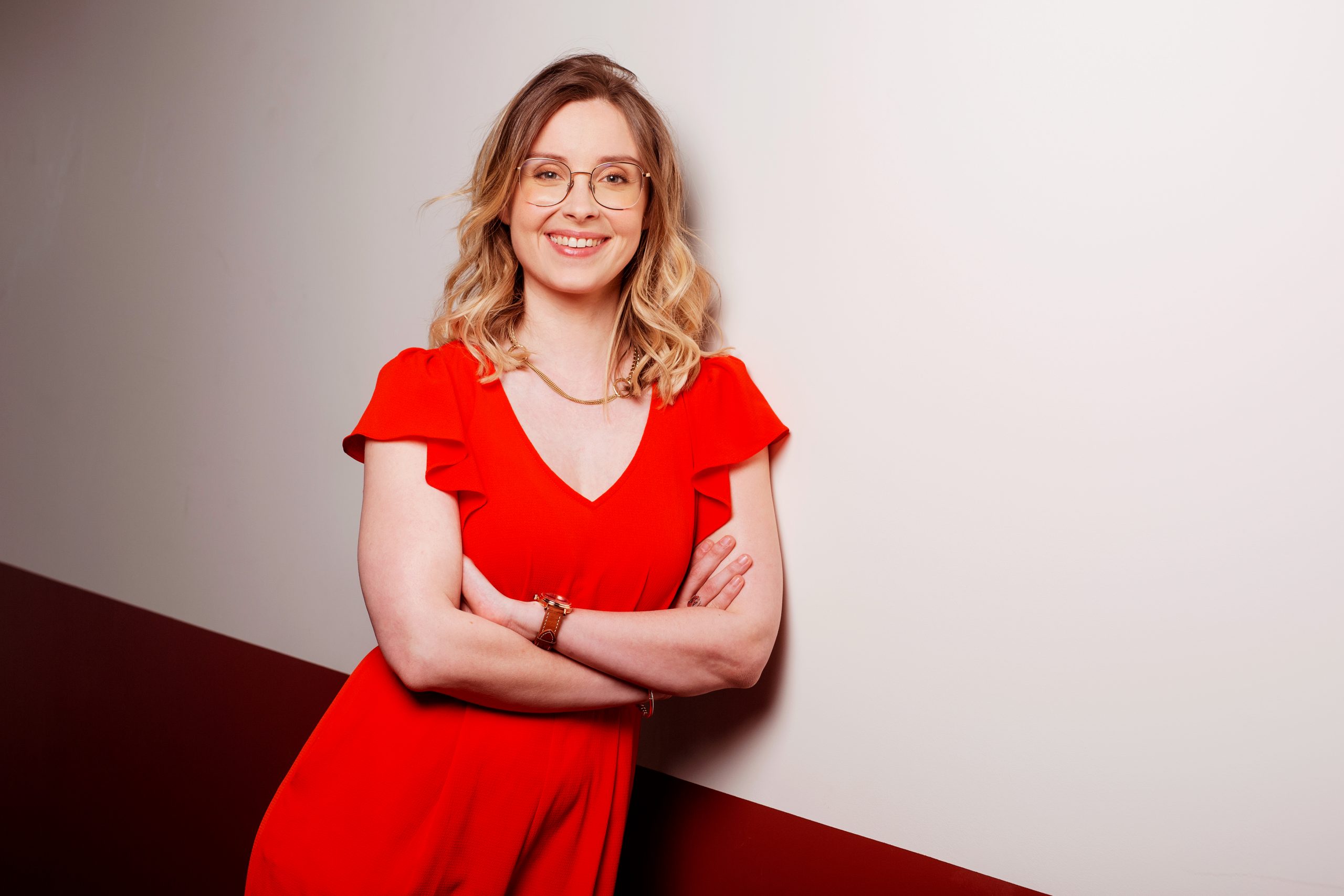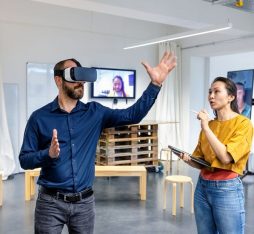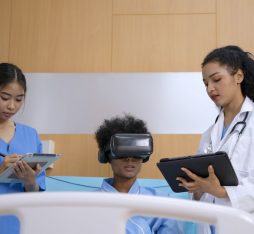● In France, the Bordeaux start-up Lucine is reaching out to companies and individuals to raise awareness of chronic pelvic-perineal pain, which it proposes to treat with virtual reality experiences that make use of specific visual and sound frequencies.
● Lyon start-up Lumeen is providing relaxing getaway experiences to nursing home residents, which not only offer a break from routine, but can also stimulate memory and attenuate behavioural disorders.
Can technology liberate medicine from pharmacological approaches? The hypothesis appears increasingly likely: a team from the university of Colorado has recently conducted a clinical study to show that patients experiencing virtual-reality (VR) immersion in relaxing natural environments during hand operations required lower doses of anaesthetic agents and spent less time in post-operative care. VR immersion also makes certain procedures on children suffering from anxiety significantly easier. “Virtual reality acts like a behavioural analgesic, offering a distraction that can be seamlessly adapted for procedures involving needles, pin removal and bandage changes for burn victims”, explains Jean-Simon Fortin, a former ER doctor and the founder of Paperplane Therapeutics, a Montreal-based start-up specializing in interactive virtual reality games for children.
The entrepreneur is convinced that VR will naturally become more common in medical practice. In response to needs of another kind, Paperplane Therapeutics has also developed experiences to prepare children for MRI scans, which show them what they can expect to see and the instructions they will have to follow, so as to reduce their anxiety in the run-up to these tests. “For teenagers and adults, we have developed other virtual reality uses with additional monitoring tools to help them perform breathing exercises. We are hoping to go a step further in stress management for adults with VR-based behavioural and cognitive therapies to help them cope with heavy treatments, such as chemotherapy, haemodialysis and palliative care”, he explains. At the same time, virtual reality has the potential to be of significant benefit in the treatment of more long-term pathologies such as chronic pain.
Virtual reality treatments with soothing stimuli based on specific visual and sound frequencies
Treating pelvic-perineal pain
After several changes of economic model and positioning, the Bordeaux start-up and digital therapeutics specialist (DTx), Lucine, decided to develop virtual reality tools for the treatment of chronic pain, and more particularly pelvic-perineal pain. Since then, it has created a VR environment in which the user’s attention is diverted from pain, which is also soothed by stimuli based on specific visual and sound frequencies. However, the director and founder of the company, Maryne Cotty-Eslous, explains that after years of development: “We realized that the real value of our offer is not in the functioning of the device, but in the service we provide.” With this in mind Lucine interacts extensively with its customers before presenting them with a product in the form of a VR headset or a tablet computer, which comes at the end of the value chain. Along with a “Tupperware-party” marketing strategy with meetings to present the company’s products and raise customer awareness, the start-up offers a unique educational experience: “We conduct workshops in companies with a period pain simulator, which allows us to break the ice and to share information with participants. Thereafter, we provide them with tools, for example to help men raise the subject with women who suffer from this type of pain, and finally, we organize workshops that are only for women.” “We are now planning to develop experiences that target all kinds of chronic pain”, points out Maryne Cotty-Eslous.
Special programmes for seniors
Last month, the Lyon start-up Lumeen acquired the assets of Cayceo, another virtual reality player specializing in medical hypnosis. The deal will enable Lumeen to extend the scope of its range. To date, the company led by Corentin Metgy has been focused on a very particular market: “We make it possible for nursing homes to offer their residents VR getaway experiences. We have found that they have an immediate and positive impact on the well-being of seniors, and the feedback from caregivers is that they also attenuate behavioural disorders, stimulate memory and reduce feelings of apathy”. To this end, Lumeen has built up a catalogue of videos that enable users to visit monuments, attend concerts and shows, and tour specific places they used to know. “We have developed a driver to synchronize content on several headsets, which allows nursing homes to offer similar immersive experiences to small groups, who can then share their impressions of the experience”, concludes Metgy.
 Maryne Cotty-Eslous
Maryne Cotty-Eslous
 Jean-Simon Fortin
Jean-Simon Fortin
 Corentin Metgy
Corentin Metgy






